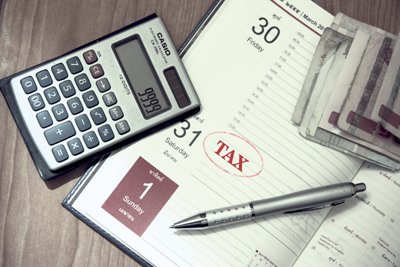Phuket Business: Mid-year tax filing deadline approaches

PHUKET: Companies and individuals who generated income in Thailand during the first six months of 2012 – regardless of where or how payments were made – have until August 31 to file their midyear tax return.
In this first article, we will go over the basics of regulations and procedures for filing and paying income tax in Thailand. Next week, we will cover withholding tax certificates and rate calculations.
When it comes to taxes, many prefer to let a trusted partner or certified accountant on the payroll take care of everything. In this case, it is important that the person who is filing on your behalf be aware of all your traceable income sources.
This will ensure that they calculate and withhold the correct amount of tax, otherwise you may find yourself with an unexpected bill, of which you, and only you, will be liable.
Individuals need to file the mid-year personal income tax prepayment form PND-94. Likewise, companies need to file the corporate income tax prepayment form PND-51.
Following are some simple explanations and basic advice.
Personal Income Tax (PIT)
Anybody who has generated income in Thailand between January 1 and June 30, 2012, is required to disclose the gross and net values of such income when filing the PND-94 form, which is due 60 days after the first six months of the year: August 31.
The purpose of the form is to calculate, pay and/or verify payment of half of one’s expected full-year tax liability. This is induced from what one made in the first six months.
If your income was subject to withholding tax, the respective tax-paid certificates (there are six in total depending on type of income) can be used as credit against projected liability.
Corporate Income Tax (CIT)
Thai companies – limited liability, partnerships or any other juristic entities – are required to pay CIT on all their net profits, globally.
Foreign companies that conduct business within Thai borders, such as those with a subsidy company or branch office in Thailand, or any other entity that sourced income from Thailand, which was in access regardless of where or how the income is disposed, are also subject to pay CIT.
Like individuals, companies are required to disclose their current and projected income, mid-year, by filing the PND-51 form, also due by August 31.
Similar to the PND-94 for PIT, the purpose of the PND-51 form is to calculate and declare your company’s expected annual net profits, by deducting all allowances and expenses from a company’s (expected) gross income.
Calculating both PIT or CIT is not as difficult as many people think, and is simply a a matter of determining which portion of your income is taxable, in the eyes of the government.
You do this by deducting your living and operational costs following specific guidelines as set forth by the Revenue Department.
The net income that remains is what will be taxed. Next week, we will look at Thailand’s withholding tax system and go over Thailand’s tax bracket system and how to apply progressive tax rates accordingly.
Disclaimer: The information provided in this article is based on personal experience and direct inquiries with the Revenue Department. The author and the Phuket Gazette will not be held liable for any damages from misuse, misinformation or misunderstanding. All specific issues should be addressed with the Revenue Department. For more information, see rd.go.th or call their hotline: 1161.
— Steven Layne
Latest Thailand News
Follow The Thaiger on Google News:


























